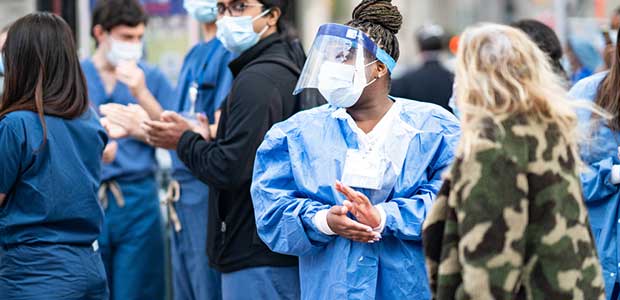
The Jobless Getting Paid More than the Essential
Back in May, “hero” pay for essential workers largely ended. Now, unemployed individuals are making more than many essential workers who are wondering what they are worth.
Many workers who lost their jobs at the start of the pandemic were stressed about a source of income—until unemployment benefits helped them stay financially afloat. Now, many people receiving unemployment benefits are realizing that they are making more than they would be actually working.
Many essential workers still going to work in high-risk environments (pharmacies, grocery stores, custodial staff, grocery stores and more) are have long since lost their “hero pay” (or not received any at all). “Hero pay,” also known as “thank you pay” or “service pay” or “hazard pay” was meant to financially benefit workers who were going to work and putting their lives at increased risk for the community. Since May, though, this pay has all but gone away again, and essential workers are down to their base pay—oftentimes, minimum wage.
Earlier this spring, “hero pay” helped workers get a wage raise, sometimes from $10 to $13 per hour. This was not a huge change, but it was a small benefit of having to risk your life to go into work every day.
Not all employees receiving hero pay really thought it was for their own safety, though. One Starbucks worker said, “It feels like Starbucks could’ve been paying me this the whole time, and they’re just choosing to do it now to help me feel better, but it’s not really paying what I need.”
While a three-dollar-increase is not much, one NPR article noted that “In a normal world, high hazard pay might be the only way to stop employees from quitting en masse.”
Not every essential worker employer offered workers hero pay, and since hero pay largely ended in May, essential workers are down the base pay they had before the pandemic. Plus, unemployment rates continue to climb as more and more people—essential and non-essential—lose their jobs.
However, unemployment benefits for many have actually proved more beneficial to their previous jobs. In fact, “those boosted unemployment checks have created a bizarre distortion in the labor market, where holding on to a job doesn't guarantee being financially better off than losing one,” said one NPR article.
One essential worker said it’s a weird imbalance between feeling like the government did not care for you enough before, but now you are making more without a job than you were before: “You feel like, [the government] never have money for people that really need it, and all of a sudden [is has] money for everybody,” she said. “But then the people that are still essentially working don’t get the recognition that they deserve.”
However, essential workers admit it is not just a problem for employers and the government. The entire country and world has continued to thank and praise essential workers with discounts, treats thank-you cards and even a shoutout at the Grammy’s. But for many, the next step needs to be a bill, or some financial support of thanks.
Many essential workers live in poorer households and do not have much savings to fall back on during the pandemic. Many families are living more comfortably on their 600-dollars-a-week unemployment checks than they ever did in their minimum wage jobs.
“I’m not angry at anyone receiving that [unemployment]. I can’t be angry, because you have to still feed your family,” says Sandra Ellington, a custodial worker at the Cleveland Hopkins International Airport in Ohio.
However, Ellington has had to work harder to save money for herself: couponing, buying even fewer groceries and taking public transportation to work.
While unemployment checks are provided much-needed aid to workers out of a job, many essential workers are questioning their own pay, and questioning their own worth as a worker. Many workers are hopeful that lawmakers will pass some kind of hazard pay for essential workers and finally come out and show that “We haven’t forgotten you.”